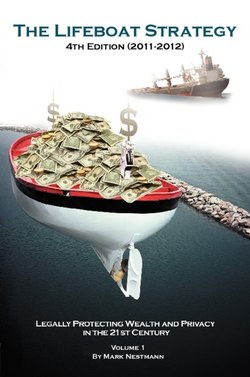Читать книгу THE LIFEBOAT STRATEGY - Mark Nestmann - Страница 28
На сайте Литреса книга снята с продажи.
Government Invasions of Privacy and Wealth
ОглавлениеUntil the end of World War II, most personal information on Americans physically resided in their homes. Outside the home, the records maintained by banks, schools, insurance companies, etc. were in paper form and retrieved only to process a transaction or claim. In general, police could retrieve these records only if they could persuade a judge to issue a search warrant, based on probable cause, that the requested records provided evidence of a crime.
By the 1950s, as computers became an integral part of American society, entrepreneurs discovered a profitable business: compiling information on individual Americans in electronic form and making it available for a fee. Some of the first large-scale users of computer technology were credit bureaus. By contracting with financial institutions,department stores, local governments, etc., credit bureaus created vast libraries of information on individual Americans – information that had never before been conveniently accessible.
As technology progressed, governments began using computers to increase efficiency and productivity. It only seemed rational to place computers where they could be used to relieve clerks of dull, repetitive jobs. By the 1950s, officials at the IRS and Social Security Administration pointed to computerization of these agencies as models for other government agencies to follow. 67
These computer systems expanded to keep pace with the increasing obligations the government assumed. From a privacy standpoint, some of the most important new responsibilities were laws relating to financial surveillance. Beginning with the Bank Secrecy Act (1970),68 Congress passed an increasingly complex series of laws intended to fight crime and later, to prevent the “laundering” of money.
To keep up with the increasing flow of data from the nation’s banks, brokerage houses, money transfer services and casinos to the government, the IRS, FBI, and other law enforcement agencies required almost continuous computer upgrades. These occurred in rapid succession, and continue today. Analysts needed a unique “personal identifier” to track individual financial transactions. The most logical choice was the Social Security number; once assigned to Americans upon entering the workplace, and now assigned at birth.
The SSN thus evolved into a universal identifying code for U.S. citizens. Knowing your SSN, anyone using one of thousands of Internet-based information services can learn where you live; where you work; what property you own; where you bank and the balance of your account; what stockbroker you use; the value of your investments; if you have ever been sued; and much more. Recent innovations in database technology make your SSN unnecessary; investigators can now retrieve your data merely knowing your name, your address, or your driver’s license number.
